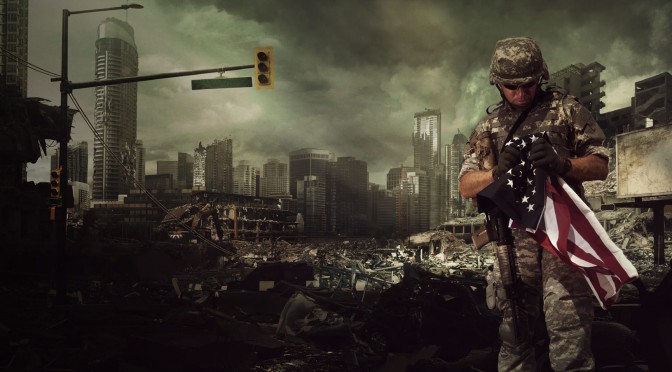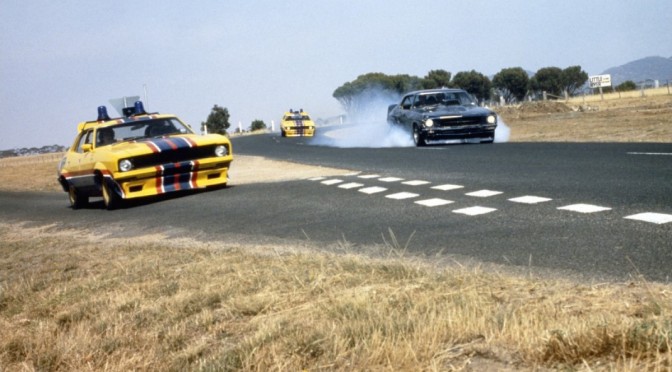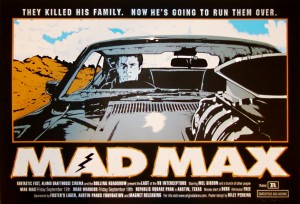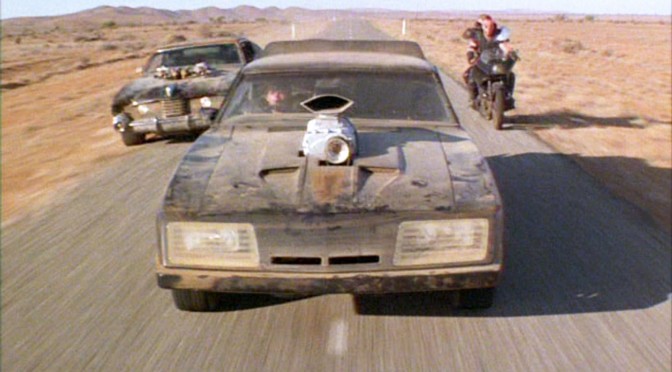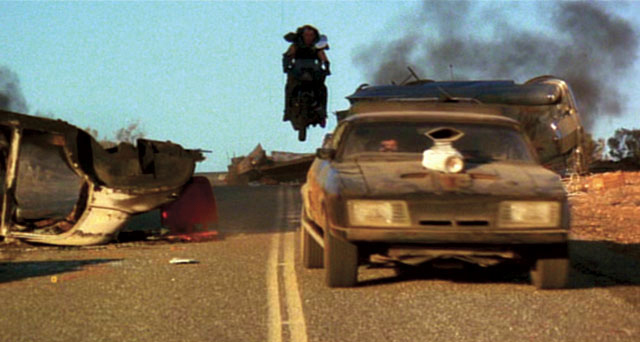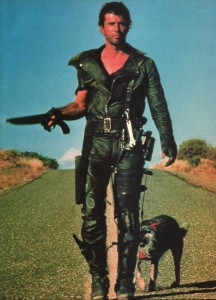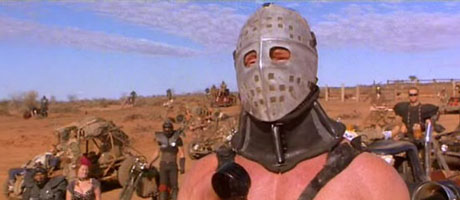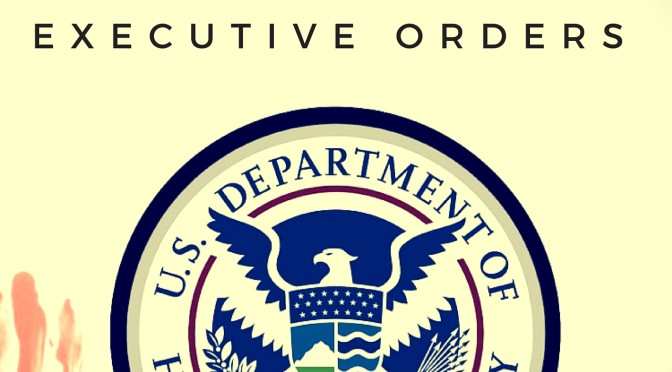Here’s the continuation of our discussion of Homeland: Falling Down, and the trends which inspired it.
HENRY BROWN: So, whether faced with our own military or with modern-day Hessians under globalist command (assuming the 3 percenters have prepped adequately enough to avoid being simply starved to death) with no support from a foreign ally and probably without popular support, how viable do you consider a guerilla resistance effort to be?
R.A. MATHIS: You mention in False Flag that no insurgency has ever won without foreign intervention and popular support, which I thought was a very good point. The two things America has to counter that are the 2nd Amendment and the 2008 election of the best gun salesman the country has ever seen. We have over 300 million citizens and about as many firearms in this country. We are also buying up ammo as fast as it can be produced (at least what is left over after DHS gets their share). Combine that with hundreds of thousands of highly trained combat veterans scattered to every part of the country, and the odds don’t look so long.
(HENRY BROWN: What a coincidence that veterans, patriots and gun owners top the list of potential “domestic terrorists” the government is most worried about, eh?)
R.A. MATHIS: This alludes to the working title of book three, “Every Blade of Grass.”
HENRY BROWN: How appropriate–that very quote (whoever said it) was just going through my mind as your words sunk in.
R.A. MATHIS: I think the success of a resistance would vary by region. Rural areas would be virtual no-go zones for regime forces. Some urban areas may just welcome them like the Vichy French.
It seems to me that the biggest problem for the resistance would be the lack of electricity. If the regime restored power to each region as it was brought into compliance, it could make for effective deadly propaganda against the resistance. It’s the old “freedom vs security” dilemma on steroids. I’m not sure which way the populace would go in that case, especially in winter.
HENRY BROWN: Very good point. Most people take electricity for granted. Few of us have any concept of what a struggle life will be without it. And that’s even without somebody intentionally trying to kill you.
R.A. MATHIS: How would you go about establishing a resistance? Could it succeed?
HENRY BROWN: That endeavor would be a kettle of quandries stuffed full of dillemmas and wrapped in Catch-22s. What I would encourage is a cellular structure perhaps similar to the French Underground or other successful resistance movements. But if it is successful, at some point it would have to take the offensive. And that would require somewhat centralized leadership–anathema to the principles hopefully held by those who constitute such a movement. That would require very rare leadership–willing to step down and surrender the reins of power when victory was secured–as George Washington did.
Could it succeed? Yes. But it would be an uphill struggle from start to finish, with no room for mistakes at the strategic level. At a tactical level I like its chances a little better, partly because of the points you made.
In Falling Down, Cole’s father, Hank, is an honest cop. In my experience that’s a rare, dying breed. But now and then I come across memes regarding certain sheriffs who have gone on record stating they will not comply with unconstitutional orders from the Feds, including civilian disarmament. As with the military, I’m skeptical that many who wear the badge will honor their oaths at crunch time. How do you see it?
R.A. MATHIS: Again, I think this may be regional. I believe small town sheriffs would be more likely to resist the regime as they personally know most of the people they would be asked to arrest, kill, etc. The impersonal nature of bigger cities allows collaborators to see numbers rather than real people. Like Stalin said, “The death of one man is a tragedy…”
Of course, there would be exceptions on both sides of the spectrum. And we must always remember that power not only corrupts, it draws the corrupt.
That last sentence ran through my mind as I read the McMillan scenes in False Flag. You mention window tint citations a few times in regard to this trooper. Was this character and situation inspired by actual events?
HENRY BROWN: Actually, yes. I made friends with a state trooper a few years back. Unlikely, but true. Stories he shared fit with things I’ve heard from other cops and ex-cops. Basically, somebody with a badge can make your life hell now for any reason at all. Window tinting was one of the specific excuses he used to harrass people and help eat out our substance. And that BS fits thematically so well, because the Surveillance State just HATES it when something impedes their invasion of our privacy.
In Homeland: Falling Down, Cole strikes me as a character who’s just an honest soldier who wants to do his duty and avoids politics like the Plague. First of all, is this an accurate assessment?
R.A. MATHIS: Yes. Like most people, he just wants to be left alone. But also like most people, politics affects him in huge ways, whether he likes it or not.
HENRY BROWN: Like the saying goes: You may not be interested in politics, but politics sure has a keen interest in you.
R.A. MATHIS: I found your character Adiur rather fascinating. His connection to Greeley, the secret government training program, the other members of his unit with equally unusual qualities and names. Can you go into detail about this character and your inspiration for him?
HENRY BROWN: This goes back to my research on the occult and mind control, again. There are documented cases of this kind of thing, including superhuman strength, drastic voice changes, change in spoken language, and being oblivious to pain. There’s other bizarre stuff like “remote viewing” and “automatic writing,” too, but I don’t know much about those phenomena yet. Anyway, molestation as a child is pretty common in these “sleeper agents” and sex acts are incorporated into the occultic rituals for adults, too. This is where Greely comes in.
It’s all pretty horrific stuff, which is why I left it behind closed doors, and only implied “vanilla” sex, at that.
Is Cole based to any degree on some particular individual?
R.A. MATHIS: He is the personification of the dilemma faced by our troops in such a time. Hank is the same, but for civilian authorities.
I’ll ask you the same thing about Greeley and Adiur.
HENRY BROWN: Greely and Handel are amalgam characters, based on different people I’ve known and met. I’ve never been involved in drugs or the occult, but I’ve rubbed elbows with others who were. Niether of these characters are what they seem to be on the surface. Greely appears to be the sultry cougar-type “strong independent woman.” She’s the object-of-every-schoolboy’s fantasy. But deep inside she’s a sick tool who is about as independent as a marionette.
Handel’s facade is perhaps just Joe Blow Normal Dude. He’s handsome, clean, in his prime, average intelligence, a “good person” on paper…but there’s more to him than superficial observation would ever indicate. He’s been horribly abused since childhood and doesn’t even know it. He’s fractured. At the risk of spoilers, he has been conditioned to surrender his will and his body over to be used as a vehicle by Adiur–a malicious personality given access to Handel when his psyche was fractured.
I don’t know for sure that anyone I’ve ever met was a bona fide MPD. But I’ve known some guys who were blank slates like Handel, susceptible to that sort of conditioning in my opinion. Such a person has a hole in their soul, and nature abhors a vacuum.
When you first introduced Eduardo in Falling Down, I couldn’t help thinking of Geraldo Rivera. But as the story progressed, I shelved the connection. You really drew a 3-dimensional character in him. He’s a disingenuous self-promoting media whore on the one hand, but he proves to have streaks of decency as well. Congrats on that, BTW. What were your thoughts when you conceived the character, and did he wind up like you first envisioned him?
R.A. MATHIS: He actually was inspired partly by Rivera, especially after I saw how Geraldo behaved on Celebrity Apprentice (not a good look for him). He represents exactly what you stated: the self-serving, headline-grabbing media. He doesnt care if his reporting is biased or disingenuous. The next step in his career is all that matter to him. Hes not an ideologue, but he will toe the line and support the narrative his superiors provide to get ahead. He is a tool (in more ways than one).
Its interesting that you ask if he is winding up as I first imagined him. I like the question because it implies Eduardo has a life of his own and makes his own choices. As a writer, thats when I know I’m onto something
. When I stop directing the characters and let them do their thing, writing down what I observe. Thats when its most fun. I dont know what Eduardo will do or how he will turn out. How will he react when he discovers the true nature of the regime? I dont know. He is a bit of a wild card.
HENRY BROWN: Definitely onto something. He lives, breathes, sweats and stinks. Seriously: kudos. Very well-drawn character.
Will the presidential candidate from the prologue appear again in subsequent books?
R.A. MATHIS: The candidate, Martha Jefferson, will have a big roll down the road. And that road is gonna be a rough one.
The assassin’s “little green book” will be a factor going forward.
HENRY BROWN: How many books do you think the Homeland series will last?
Right now I.m thinking at least three, maybe four. It really depends on where the characters take the story…and sales (You’re laughing–I’m not laughing).
HENRY BROWN: Not laughing, really. Just smiling. But think of it as a smile of solidarity.
Is there anything you’d like to share about Executive Order?
R.A. MATHIS: Yes. President Tophet is just getting started. If you thought things are bad now, just wait.
Can you give a hint as to what is in store for the next Retreads book?
HENRY BROWN: I haven’t woven it all together completely yet in the cobweb of my mind, but there’s got to be a showdown between Adiur and Tommy Scarred Wolf. Also between McCallum and either Rennenkampf or Cannonball. The latter would be more dramatic. An EMP. Grid down. Starvation. Dissident extraction. Internment camps. The clergy response team. Jihadi terror cells completely unleashed. Texas secedes. Rocco and his crew take in some refugees. Clashes with occupation forces. And, oh yeah: World War Three. That’s a few off the top of my head.
Changing gears a bit, where did the idea for Ghosts of Babylon come from?
R.A. MATHIS: A few months before deploying to Iraq, I found a picture of my grandfather taken in Germany during WW2. With the photo was a note written on the tissue paper issued to GIs to write home with in those days. He had just learned of Germany’s surrender and was looking forward to coming home and not sleeping in a foxhole anymore.
I wished I had more. More of his experiences. More of his thoughts and feelings. More of him.
So I kept a journal during my Iraq deployment so my family would have more than a picture and a note decades from then. When I finally got back home, I started writing, using the journal as the basis for a memoir. It was partly self-therapy and partly out of a desire to pass my experiences down to my children while they were still fresh on my mind.
It eventually morphed into a novel. I still dont know why. Maybe there were things I needed to say that could only be said through fiction. In any case, it eventually turned into Ghosts of Babylon.
We all begin writing for different reasons. I once read that no one writes because they are happy. What inspired you to start writing?
HENRY BROWN: First of all, that is a cool story unto itself. Thanks for sharing that.
As for me and writing, I’ve always had an active imagination, for one. Also, from a very young age, no matter how much I liked a story (either on film or on paper) I saw room for improvement. “It would have been even better if this was changed, that was tweaked, if so-and-so would have said/done such and such…” At least that motivated me in my first creative efforts.
I kind of did that with real stuff throughout my life, too. “Hey, what just happened would make an intense scene in such-and-such type of story.” Or, “Oh wow–check that out! I’d love to be able to capture what I’m seeing/feeling right now and reproduce it.”
There have been times when I really should have been completely focused on reality and my part of whatever task was at hand, but part of my mind was already busy plagiarizing the situation. Somebody once called me “a cultural scavenger.” I still have mixed emotions about that remark. Maybe he meant it as a compliment, but it still seems a bit insulting. Nevertheless, there must be some truth to it, since I’m constantly compelled to weave fragments of life experiences together into stories (which are much more exciting than real life).
In fact, that’s still at work today, in yarns like False Flag. All these trends are converging toward a perfect storm that promises a bleak future and an end to life as we know it…so why not insert some guys like the Retreads, who won’t take it lying down, no matter the odds. Islands of integrity in a world of treachery. They’ve got the skills and wits to bring smoke on some scumbags in the process. And most important, they’re compelled to try to make a difference.
You strike me as a voracious reader. I sure used to be. When I was on active duty, when possible, I always had a paperback stashed in my cargo pocket or rucksack, for the inevitable “wait” phase of the old hurry-up-and-wait S.O.P. Did you keep a book stashed in your tank?
R.A. MATHIS: I read a little of everything. I especially enjoy sci-fi, fantasy, history, philosophy, and even a little horror. Unfortunately, working and writing leave far less time for reading than I would like. I read as much as I can, but am frustratingly slow at it. I often supplement reading with audio books and YouTube.
I usually had a book handy in the Army, but never got to read it on the tank as I was the platoon leader and barely found time to eat and sleep during operations. But I read constantly during after-operation downtime. Like you, there were also the times waiting on the tarmac for a flight, leaning on my rucksack, stealing a few pages here and there.
HENRY BROWN: Oh yeah, I got a lot of reading done sitting around Green Ramp in my lower enlisted days.
R.A. MATHIS: What do you enjoy reading most?
HENRY BROWN: Excepting horror and philosophy, the same ones you listed, plus classic pulp; westerns; war (fiction and non); military history; and various & sundry fare from the blogosphere in the “neomasculine” genre.
Have you/do you read SHTF or TEOTWAWKI fiction from other authors? If so, which do you recommend? (Some authors I recently discovered, who have written some enjoyable books, are “Joe Nobody” and Mark Goodwin. I’m curious about “A. American” and some others, but haven’t taken a chance on them yet.)
R.A. MATHIS: Oddly enough, I haven’t read many other SHTF works other than False Flag (which I thoroughly enjoyed) and a bit of James Wesley Rawles first book, Patriots. I want to keep Homeland original as possible, so I’m avoiding similar works right now. I do plan to read them once I’m a little further into the Homeland series.
HENRY BROWN: Interesting. It seems that it’s paying off–Falling Down did not seem derivative or imitative of any other SHTF works I’ve read. And thanks for that!
I read Patriots as well, and have considered trying more of Rawles’ fiction…but haven’t, yet.
R.A. MATHIS: Which authors do you recommend I start with?
HENRY BROWN: Me, of course. But seriously, you might want to try “Joe Nobody“–he blends prepping info into his narratives fairly well. The protagonist in the ones I read was easy to root for. The action was believable. Overall a good read.
R.A. MATHIS: Thank you again for having me, Hank. Your questions were enjoyable and thought provoking. I truly enjoyed them.
HENRY BROWN: Hey, same here. We should do this again some time.
The plot toggles between Gordon’s ordeal, little brother Sebastian’s story, and federal-level politicians. For the most part, the character interactions are believable, although there is a high Character Stupidity Quotient in effect–especially when it comes to Sebastian. Sebastian is such an idiot that, were he the star of the show, I probably would have quit reading. (Ironic, because toward the end, I found his story the most interesting.) I lost patience and began to skim through the sub-plots with the Speaker of the House-turned-President, his wife, Vice President, assistants and generals. Those segments resembled a literary soap opera that aren’t really even necessary for the plot.




